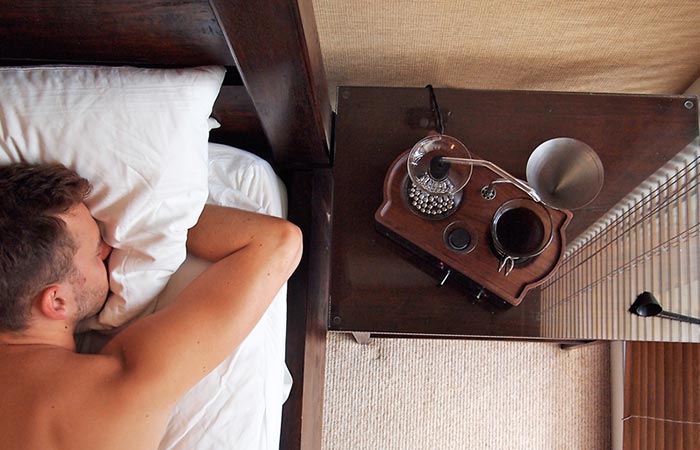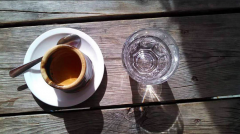As long as there is a moderate amount of coffee, the health benefits of drinking coffee still outweigh the disadvantages.

Professional barista communication, please pay attention to coffee workshop (Weixin Official Accounts cafe_style)
"As long as you don't drink too much coffee, do you still have more health benefits than disadvantages?"
Coffee has many benefits besides being refreshing:
A 20-year study of more than 40,000 men and 80,000 women conducted by Harvard University and the Autonomous University of Madrid in Spain found that adults who drink coffee every day are less likely to die of cardiovascular disease than those who do not drink coffee. For women, drinking two to three cups of coffee a day reduced the risk of death from heart disease or stroke by 25 to 33 percent, while men needed four cups a day to see the effect. Researchers believe that mainly antioxidants in coffee can reduce inflammation and improve blood vessel function, thus achieving heart-protecting effects, but if you drink more than five cups a day, excessive caffeine intake may offset the benefits of antioxidants, but it is bad for the heart.
Coffee has a strong antioxidant effect and brain protective effect. Dr. Wang Pei-ning of the Department of Neurology of Beijung University points out that many studies have found that coffee has a preventive effect on Alzheimer's disease and Parkinson's disease. Recent studies have shown that people who drink more than 3 cups of coffee a day have a more significant effect on reducing cognitive decline.
The Canadian study further looked at Parkinson's patients and found that coffee helped them improve their motor symptoms, presumably by blocking abnormal signals in the brain.
Drinking coffee may also be a good way to fight the Taiwanese national disease "liver disease". Dr. Li Ping-ying, a pediatrician at National Taiwan University Hospital, points out that previous studies have found that caffeine can reduce inflammation and damage to the livers of animals damaged by toxins. Research published in Gastroenterology, an authoritative journal of the Department of Gastroenterology, also shows that drinking coffee can reduce the rate of abnormal liver function, and that people who drink more than two cups of coffee a day can reduce the incidence of chronic liver disease by 60%.
The results of three long-term studies conducted by the Epidemiology and Prevention Research Department of the National Cancer Center in Tokyo, Japan, show that people who drink coffee every day are about 50% less likely to develop or die of liver cancer than those who do not drink coffee, confirming the anti-cancer effects of black coffee.
Sweden's largest medical institution also comprehensively analyzed 11 global research papers, pointing out that drinking two cups of coffee a day can reduce the risk of liver cancer by 43%, and concluded that the main mechanism is that coffee contains antioxidants such as chlorogenic acid, which is conducive to resisting oxidative stress of body tissues and inhibiting carcinogen formation.
However, one should be careful when drinking coffee to protect the liver, because caffeine acts on the sympathetic nervous system and must be metabolized by the liver and kidneys. Chen Pei-che, a professor at the Graduate Institute of Clinical Medicine at National Taiwan University Medical College, believes that drinking too much coffee will increase the burden on the liver, and it should be taken in moderation.
Research shows that coffee drinking does not increase the risk of most cancers, but reduces the incidence of breast, skin and colon cancer.
A University of Toronto study of 1700 women with breast cancer risk genes found that drinking one to three cups of coffee a day reduced the risk of breast cancer by 10%, and drinking more than six cups reduced the risk of cancer by 70%.
Another report, published in the Journal of Cancer Research, tracked the health of 110,000 people over 20 years and found that coffee consumption reduced the risk of basal cell cancer, a form of skin cancer, but decaffeinated coffee did not.
In addition, Japanese scholars also pointed out that women who drink more than 3 cups of coffee a day can reduce the incidence of colorectal cancer by 60%, but there is no similar finding in men.
Coffee for rheumatoid arthritis: inconclusive
However, the medical community is still uncertain about the impact of coffee on rheumatoid arthritis. Finland's National Institute of Public Health, for example, tracked the coffee drinking habits of 19,000 Finns for 15 years and found that those who drank more than three cups a day were twice as likely to develop rheumatoid arthritis as those who drank less than three cups a day.
But a University of Alabama study of 30,000 women aged 55 to 69 found that those who drank more than four cups of decaf coffee a day had twice the risk of rheumatoid arthritis as those who did not drink coffee. Harvard Medical School later conducted an analysis of 70,000 volunteers 'dietary frequency questionnaires, and found that there was no evidence to support the relationship between coffee and rheumatoid arthritis.
Chen Yi-hsing, chief physician of the Department of Allergy and Rheumatology at Taichung Veterans General Hospital, points out that drinking caffeinated coffee has no adverse effect on rheumatoid arthritis, but drinking more than four cups of decaffeinated coffee is more disadvantageous. Therefore, he suggests that rheumatoid arthritis patients can still drink coffee as long as they do not drink too much to affect their sleep.
Important Notice :
前街咖啡 FrontStreet Coffee has moved to new addredd:
FrontStreet Coffee Address: 315,Donghua East Road,GuangZhou
Tel:020 38364473
- Prev

The newly opened KFC and Starbucks on the street corner were unanimously excluded by the residents because …...
Exchange of professional baristas please follow the coffee workshop (Wechat official account cafe_style) Leslieville is about to open a new KFC, but the nearby residents are not buying it! KFC claims to use 11 kinds of spices in exchange for a sentence from the surrounding residents not to open it in my backyard. How on earth is this going on? KFC's location this time is 1364 Queen St. Eas
- Next

What do you need to bake in your own baking coffee? What's the advantage?
Exchange of professional baristas Please pay attention to the coffee workshop (Wechat official account cafe_style) the number of self-baked coffee (HOME ROASTING) at home has begun to grow rapidly. It is estimated that the proportion of home-baked coffee will continue to rise between 2013 and 2015, and people who enjoy their own baked bean coffee will become a big consumer market in the future.
Related
- Got entangled?! Lucky opens a new store, Mixue Ice City, and pursues it as a neighbor!
- How long is the shelf life of high-quality hand-brewed hanging ear coffee? Why is the taste period of hanging ear coffee ground into powder only one month?
- Why does hand-brewed espresso smell good but taste bitter? Is the flavor of high-quality hand-brewed coffee aroma or taste?
- Special treatment? COSTA's China business was evaluated separately!
- Match with Xi Tea?! Lucky will launch the new "Snow Cheese Grapes"
- What is the recommended proportion of water temperature and grinding time for hand-flushing Huakui coffee beans? What parameters should be used for cold extraction and cold brewing hand-brewed Huakui coffee?
- Share the most detailed golden formula for cold extract coffee making on the whole network! What proportion of ground is used to make cold coffee brewed for several hours?
- What are the advantages of segmented water injection for hand-brewed coffee? How many stages should I fill the water when making coffee and what is the best time for grinding the water temperature?
- What are the water quality requirements for hand-brewed coffee? What water is the best? Why can't coffee machines use pure water to extract coffee?
- Why does it become bitter after making coffee with your hands and letting it cool? What is the difference between the taste of hot coffee and cold coffee? Which is better?

